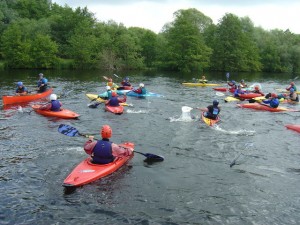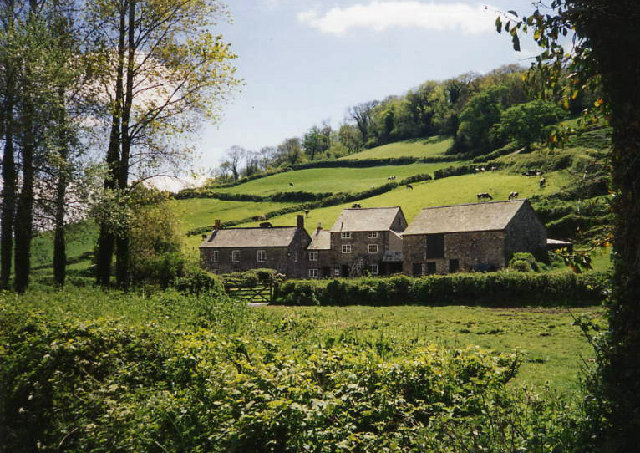Many members of the Duke of Edinburgh’s Award programme join during their early teens, simply because they wish to get involved in some fun activities outside of school, and make new friends. But as they complete one challenging task after another, they usually begin to realise just how beneficial their participation in the DofE can be, both personally and professionally; the vast majority find that they become far more confident, responsible and organised because of their involvement in this programme. These qualities are essential in any profession, and as such, it can safely be said that completing each level of the DofE will vastly improve a young person’s future career prospects.
Last summer, the DofE committee created a survey in which it asked participants to discuss their thoughts about the programme. The results should come as no surprise to anyone who is familiar with the DofE, like Tunde Folawiyo; they showed that 80% of those aged between 16 and 18 believed that having been involved in the DofE would make it easier for them to secure a job in their chosen industry after they leave school, with many stating that the skills and qualities they had acquired would help them through the interview process. Those who had received their Gold Award said that they felt they had developed the most important employability attributes, including self-management, problem-solving, team work and communication.
Local authorities and youth development organisations across the UK are becoming far more aware of how beneficial it is for youths to  complete this programme, and are now encouraging teens to join the DofE, as a means of reducing national unemployment figures in the future. Just recently, Bishop Auckland College collaborated with a regeneration project called Durham-Gate, to host a series of events designed to encourage local teenagers to sign up for the DofE. One of the attendees, Neil McMillan, explained that getting young people to join this programme would give them a significant advantage in the job market later in their lives, as many employers now actively seek out candidates who have received their Bronze, Silver and Gold DofE awards.
complete this programme, and are now encouraging teens to join the DofE, as a means of reducing national unemployment figures in the future. Just recently, Bishop Auckland College collaborated with a regeneration project called Durham-Gate, to host a series of events designed to encourage local teenagers to sign up for the DofE. One of the attendees, Neil McMillan, explained that getting young people to join this programme would give them a significant advantage in the job market later in their lives, as many employers now actively seek out candidates who have received their Bronze, Silver and Gold DofE awards.
A similar event was arranged by a company called Amey last year; they hosted a workshop which aimed to tackle unemployment amongst young people. Amey is one of just seven businesses in the UK which allows its under-25 employees to join the DofE as part of their training. The Earl of Wessex attended the workshop; he noted that the current economy makes it very difficult for those in their late teens and early twenties to obtain employment, and that it would therefore be wise for young people to join a programme like the DofE, which will help them to grow into well-rounded, confident and capable adults. This is an opinion which Tunde Folawiyo, and other supporters of the DofE might agree with.

![By siegertmarc (St James Palace Uploaded by MaybeMaybeMaybe) [CC-BY-2.0 (http://creativecommons.org/licenses/by/2.0)], via Wikimedia Commons Tunde Folawiyo](http://upload.wikimedia.org/wikipedia/commons/thumb/4/49/St_James_Palace_%286017571180%29.jpg/512px-St_James_Palace_%286017571180%29.jpg) Ellen had an equally positive experience, stating that her volunteer work with a charity shop had been hugely rewarding, and that she had made many new friends as a result of her involvement with the DofE. Whilst she admitted that at times, it had been challenging, she said that in the end, it had been worth it. Both Harry and Ellen will be receiving their official certificates at a ceremony in St James’ Palace this month.
Ellen had an equally positive experience, stating that her volunteer work with a charity shop had been hugely rewarding, and that she had made many new friends as a result of her involvement with the DofE. Whilst she admitted that at times, it had been challenging, she said that in the end, it had been worth it. Both Harry and Ellen will be receiving their official certificates at a ceremony in St James’ Palace this month.![By zoonabar (Flickr) [CC-BY-2.0 (http://creativecommons.org/licenses/by/2.0)], via Wikimedia Commons Lawrence Dallaglio 2006](http://upload.wikimedia.org/wikipedia/commons/thumb/2/2e/Lawrence_Dallaglio_2006.jpg/512px-Lawrence_Dallaglio_2006.jpg) aglio – the former rugby star who launched the foundation – to help teens to get involved with the DofE, via their local rugby associations.
aglio – the former rugby star who launched the foundation – to help teens to get involved with the DofE, via their local rugby associations.![Patrick Mackie [CC-BY-SA-2.0 (http://creativecommons.org/licenses/by-sa/2.0)], via Wikimedia Commons Tunde Folawiyo](http://upload.wikimedia.org/wikipedia/commons/thumb/1/12/Spiral_staircase_-_geograph.org.uk_-_184360.jpg/256px-Spiral_staircase_-_geograph.org.uk_-_184360.jpg) e days. Those who are aware of this programme, like Tunde Folawiyo, might know that the Residential section is particularly demanding, as it involves working on a challenging goal with complete strangers, in an unfamiliar setting.
e days. Those who are aware of this programme, like Tunde Folawiyo, might know that the Residential section is particularly demanding, as it involves working on a challenging goal with complete strangers, in an unfamiliar setting.![By TUBS [CC-BY-SA-3.0 (http://creativecommons.org/licenses/by-sa/3.0) or GFDL (http://www.gnu.org/copyleft/fdl.html)], via Wikimedia Commons Tunde Folawiyo](http://upload.wikimedia.org/wikipedia/commons/thumb/6/6d/United_Kingdom_in_the_world_%28Jersey_special%29_%28Europe_centered%29.svg/512px-United_Kingdom_in_the_world_%28Jersey_special%29_%28Europe_centered%29.svg.png) These two organisations have made is considerably easier for young people around the world to get involved with the DofE. Currently, the programme has more than 850,000 participants worldwide, and since the DofE was first launched, approximately 8 million people have completed their bronze, silver and gold level activities.
These two organisations have made is considerably easier for young people around the world to get involved with the DofE. Currently, the programme has more than 850,000 participants worldwide, and since the DofE was first launched, approximately 8 million people have completed their bronze, silver and gold level activities.

![By Allan warren (Own work) [CC-BY-SA-3.0 (http://creativecommons.org/licenses/by-sa/3.0) or GFDL (http://www.gnu.org/copyleft/fdl.html)], via Wikimedia Commons Tunde Folawiyo](http://upload.wikimedia.org/wikipedia/commons/thumb/e/e2/Duke_of_Edinburgh_33_Allan_Warren.jpg/256px-Duke_of_Edinburgh_33_Allan_Warren.jpg) Those who have reached the end of their journey with the DofE, and received their Gold awards have nothing but good things to say about their experience of this programme. Take Hollie Devlin for instance; this young woman recently received her gold award from Prince Philip, at St James’s Palace in London. She got involved in the programme whilst working at the Ramsey Grammar School as a teacher of modern foreign languages, progressing to the Gold level, and passing each section with flying colours.
Those who have reached the end of their journey with the DofE, and received their Gold awards have nothing but good things to say about their experience of this programme. Take Hollie Devlin for instance; this young woman recently received her gold award from Prince Philip, at St James’s Palace in London. She got involved in the programme whilst working at the Ramsey Grammar School as a teacher of modern foreign languages, progressing to the Gold level, and passing each section with flying colours.![By DOE Canada (Own work) [CC-BY-SA-3.0 (http://creativecommons.org/licenses/by-sa/3.0)], via Wikimedia Commons Tunde Folawiyo](http://upload.wikimedia.org/wikipedia/commons/thumb/0/05/DOE_Canada_National_Logo.jpg/512px-DOE_Canada_National_Logo.jpg) Silver level activities, whilst those who have not received the Bronze award are required to spend at least a year at this stage.
Silver level activities, whilst those who have not received the Bronze award are required to spend at least a year at this stage.![By Strebe (Own work) [CC-BY-SA-3.0 (http://creativecommons.org/licenses/by-sa/3.0)], via Wikimedia Commons Tunde Folawiyo](http://upload.wikimedia.org/wikipedia/commons/thumb/9/91/Winkel_triple_projection_SW.jpg/512px-Winkel_triple_projection_SW.jpg) In the case of the Duke of Edinburgh’s Award, many participants say that their experience, and the skills they acquire throughout their journey are reward enough. However, the DofE committee makes it a policy to ensure that the young participants’ achievements are publically acknowledged and celebrated, which is why, each year, they host dozens of Gold Award Presentations (GAPs), in venues all over the world.
In the case of the Duke of Edinburgh’s Award, many participants say that their experience, and the skills they acquire throughout their journey are reward enough. However, the DofE committee makes it a policy to ensure that the young participants’ achievements are publically acknowledged and celebrated, which is why, each year, they host dozens of Gold Award Presentations (GAPs), in venues all over the world.